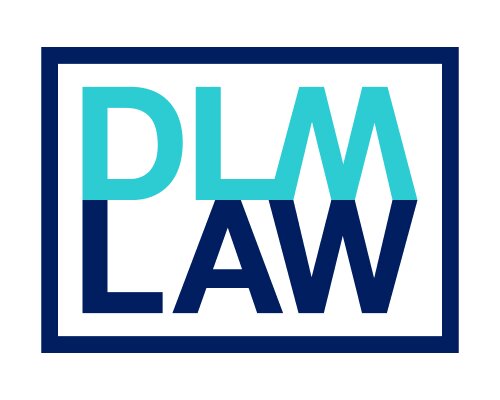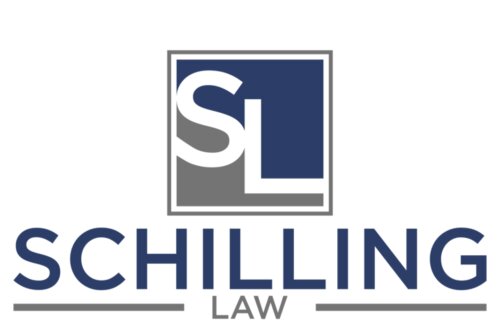Best New Business Formation Lawyers in Kansas
Share your needs with us, get contacted by law firms.
Free. Takes 2 min.
Or refine your search by selecting a city:
List of the best lawyers in Kansas, United States
About New Business Formation Law in Kansas, United States
Starting a new business in Kansas involves navigating a series of legal steps and regulatory requirements. Business formation law refers to the statutes, administrative rules, and procedures that govern how new companies can be established and operated within the state. From selecting a business structure to registering with the state and obtaining necessary permits, Kansas law outlines specific paths entrepreneurs must follow. Understanding these rules is essential for protecting your investments, minimizing liability, and setting up your Kansas business for long-term success.
Why You May Need a Lawyer
Many people embarking on a new business venture assume they can handle the process on their own, but there are several situations where consulting a lawyer is beneficial:
- Choosing the best legal structure for your business, such as LLC, corporation, partnership, or sole proprietorship
- Drafting and reviewing foundational documents like operating agreements, bylaws, or partnership agreements
- Ensuring compliance with state and federal regulations
- Registering trademarks, copyrights, or patents
- Negotiating leases or contracts with vendors, customers, or partners
- Addressing tax planning and liability issues
- Resolving disputes among owners or with external parties
- Advising on employment law matters as your business grows
Having a knowledgeable attorney can help you avoid costly mistakes and legal complications, allowing you to focus on building your business.
Local Laws Overview
Kansas business formation is governed by several state statutes, primarily found in the Kansas Statutes Annotated (KSA), and by administrative regulations. Some key aspects include:
- Business Entity Types: Kansas recognizes several business entities, including sole proprietorships, general partnerships, limited liability companies (LLCs), corporations (including S corporations and C corporations), and limited partnerships.
- Registration Requirements: Corporations, LLCs, and certain partnerships must file formation documents with the Kansas Secretary of State. This includes Articles of Incorporation (for corporations) or Articles of Organization (for LLCs).
- Name Availability: New business names must be distinguishable from existing entities on record with the Secretary of State. A name reservation search and filing may be conducted to confirm availability.
- Licensing and Permitting: Depending on your specific business type and location, you may need to obtain state, county, or city licenses and permits before operating legally.
- Tax Registration: Businesses must register with the Kansas Department of Revenue if they will collect sales tax, hire employees, or be subject to Kansas state taxes.
- Annual Filings: Most registered business entities must file annual reports and pay associated fees to maintain good standing.
- Employer Obligations: Hiring employees brings responsibilities such as obtaining workers’ compensation insurance, unemployment insurance, and complying with local labor laws.
Kansas makes many formation steps accessible online, but the complexity of requirements can vary significantly based on the business type and industry.
Frequently Asked Questions
What is the best business structure for a new business in Kansas?
It depends on your goals, the size of your business, liability concerns, and tax considerations. LLCs are popular for small businesses due to their flexibility and liability protection, but corporations or partnerships may be better for other scenarios.
Do I have to register my business name in Kansas?
If you form a corporation, LLC, or certain partnerships, registering your business name with the Kansas Secretary of State is required. Sole proprietorships and general partnerships using a trade name may need to register a fictitious name (also called a "doing business as" or DBA).
What are the fees to start a business entity in Kansas?
Filing fees vary depending on the entity type. As of 2024, forming a Kansas LLC costs a filing fee for the Articles of Organization. Corporations have their own filing fees. Additional costs may apply for name reservation, permits, or licenses.
Do I need a business license in Kansas?
Kansas does not require a general business license statewide, but many specific industries are regulated and require state or local licenses. Cities and counties may also have their own licensing requirements.
How do I obtain a federal Employer Identification Number (EIN)?
An EIN is issued by the Internal Revenue Service (IRS) and is needed for most businesses, especially those with employees. It can be obtained online from the IRS at no cost.
What annual requirements does my business have in Kansas?
Corporations and LLCs must file annual reports and pay the associated fee with the Kansas Secretary of State. Failure to do so can result in administrative dissolution.
Can I change my business structure later?
Yes, it is possible to convert or reorganize your business entity, but the process can be complex and may have tax consequences. Legal assistance is recommended for such changes.
What are my responsibilities if I hire employees?
You must comply with employment, tax withholding, workers’ compensation, and unemployment insurance requirements. You will also need to abide by federal and Kansas labor laws regarding employee rights and workplace safety.
Do I need an attorney to form a business in Kansas?
While you are not legally required to hire an attorney, doing so can help prevent costly mistakes, ensure proper documentation, and provide guidance on regulatory compliance.
What happens if my business is administratively dissolved?
If you fail to meet annual filing or fee requirements, your entity can lose its good standing and be dissolved by the state. You can usually reinstate your business by resolving deficiencies, but the process may involve additional fees and paperwork.
Additional Resources
For additional information or assistance, consider these helpful resources:
- Kansas Secretary of State - Handles business entity filings and records
- Kansas Department of Revenue - Manages state tax registration and information
- Small Business Administration (SBA) - Provides guidance, local office contact, and funding resources
- Local Chambers of Commerce - Offers networking opportunities and local business support
- Kansas Small Business Development Center (KSBDC) - Offers free or low-cost training and counseling services
- Area legal aid organizations - Can help qualifying business owners with legal advice
Next Steps
If you are ready to start your business or need help sorting through your options, consider these steps:
- Identify your business goals and potential structure
- Gather necessary information such as potential names, proposed address, and intended business activities
- Consult with a Kansas business attorney for personalized advice on formation and compliance
- Prepare and file required documents with the Kansas Secretary of State and other agencies as needed
- Organize and store all foundational documents, licenses, and permits
- Follow up with professional advisors (accountant, tax specialist, business consultant) for ongoing support
Proper legal planning early in the business formation process can save time and money while laying a strong foundation for your new venture in Kansas.
Lawzana helps you find the best lawyers and law firms in Kansas through a curated and pre-screened list of qualified legal professionals. Our platform offers rankings and detailed profiles of attorneys and law firms, allowing you to compare based on practice areas, including New Business Formation, experience, and client feedback.
Each profile includes a description of the firm's areas of practice, client reviews, team members and partners, year of establishment, spoken languages, office locations, contact information, social media presence, and any published articles or resources. Most firms on our platform speak English and are experienced in both local and international legal matters.
Get a quote from top-rated law firms in Kansas, United States — quickly, securely, and without unnecessary hassle.
Disclaimer:
The information provided on this page is for general informational purposes only and does not constitute legal advice. While we strive to ensure the accuracy and relevance of the content, legal information may change over time, and interpretations of the law can vary. You should always consult with a qualified legal professional for advice specific to your situation.
We disclaim all liability for actions taken or not taken based on the content of this page. If you believe any information is incorrect or outdated, please contact us, and we will review and update it where appropriate.
Browse new business formation law firms by city in Kansas
Refine your search by selecting a city.











